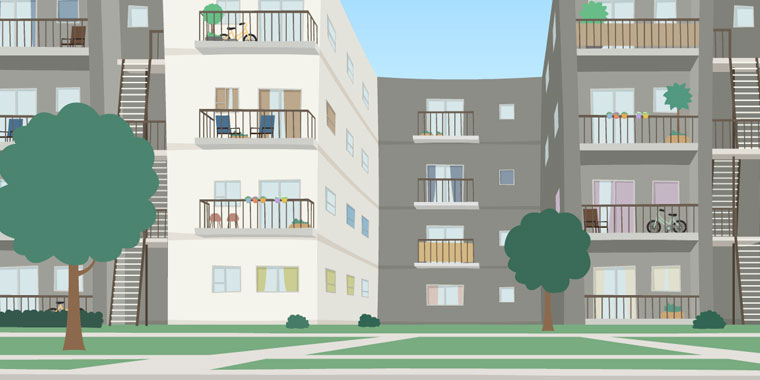Buying A Condo With An FHA Mortgage
January 15, 2025
FHA Condo Project Approval
The first challenge is to find a condo unit you like and make an offer to the seller. If the condo project isn't FHA-approved, you might be able to get an FHA loan through a Single-Unit Approval process, but this can be complex and take longer. Ask your loan officer about this option.
Loan Application and Financial Documentation
Once you confirm FHA eligibility, apply for the loan through an FHA-approved lender. You'll need to provide documents that show you can afford the loan, like proof of income, assets, and credit history. This usually includes recent pay stubs, bank statements, tax returns, and a credit report.
The lender will review these to assess your financial stability and creditworthiness.
Loan Processing and Condominium Project Review
After you apply, the lender will start processing your loan. The lender will also review the condo project's documents to ensure they meet FHA guidelines. This includes checking the project's finances, insurance, owner-occupancy ratio, and any legal issues affecting the property's value or ownership.
Underwriting and Conditional Approval
Next, an underwriter will review your loan file. The underwriter will assess your financial profile and the risk associated with the condo project. They will check your finances, the appraisal, and the condo project's docs to ensure everything meets FHA requirements.
If the underwriter decides that you and the condo project meet FHA standards, they will give you conditional approval. This means you'll need to meet certain conditions, like providing more documentation or addressing issues found in the appraisal or condo project review.
Fulfillment of Conditions and Final Approval
You'll work with the lender to meet the conditions of the conditional approval. Once you meet all the conditions, the underwriter will approve and authorize the final loan documents.
Closing Preparation and Documentation
The lender will prepare the closing documents, including the mortgage note, deed of trust, and closing disclosures. You must review and sign these before closing.
Closing and Ownership Transfer
The closing is usually at a title company or attorney's office. You'll sign the final loan documents, pay closing costs, and prepay some items like property taxes and homeowners insurance. After signing and paying, you'll officially own the condo.
An FHA loan can be a great way to finance a condo purchase. To help ensure a smooth and timely closing, keep in touch with your lender, meet all conditions, and stay organized.

FHA Loan Articles
August 14, 2023FHA loans typically require a minimum down payment of 3.5% of the purchase price of the home with the right credit score. This means that if you're buying a house for $240,000, you would need to make a down payment of at least $8,400.
August 10, 2023FHA loans have specific rules and requirements for borrowers who have filed for bankruptcy. The guidelines can change over time, so it's essential to consult with a qualified lender or FHA-approved counselor for the most up-to-date information.
August 3, 2023FHA loans are primarily designed to help individuals and families purchase homes for use as their primary residences. Rules for these loans generally discourage their use for investment properties or rentals. However, there are exceptions that come with strict rules.
July 29, 2023One crucial aspect of FHA loans that borrowers need to understand thoroughly is debt ratios. In this article, we look at how they can impact your ability to secure financing for your dream home. Debt ratios help lenders understand a borrower's creditworthiness and any risks associated with the loan.
July 21, 2023Investing in a multi-unit property can be an excellent way to build wealth through rental income and property appreciation. FHA multi-unit property loans make this opportunity more accessible to a broader range of individuals. You must occupy a unit as your primary residence within 60 days of closing the loan.







